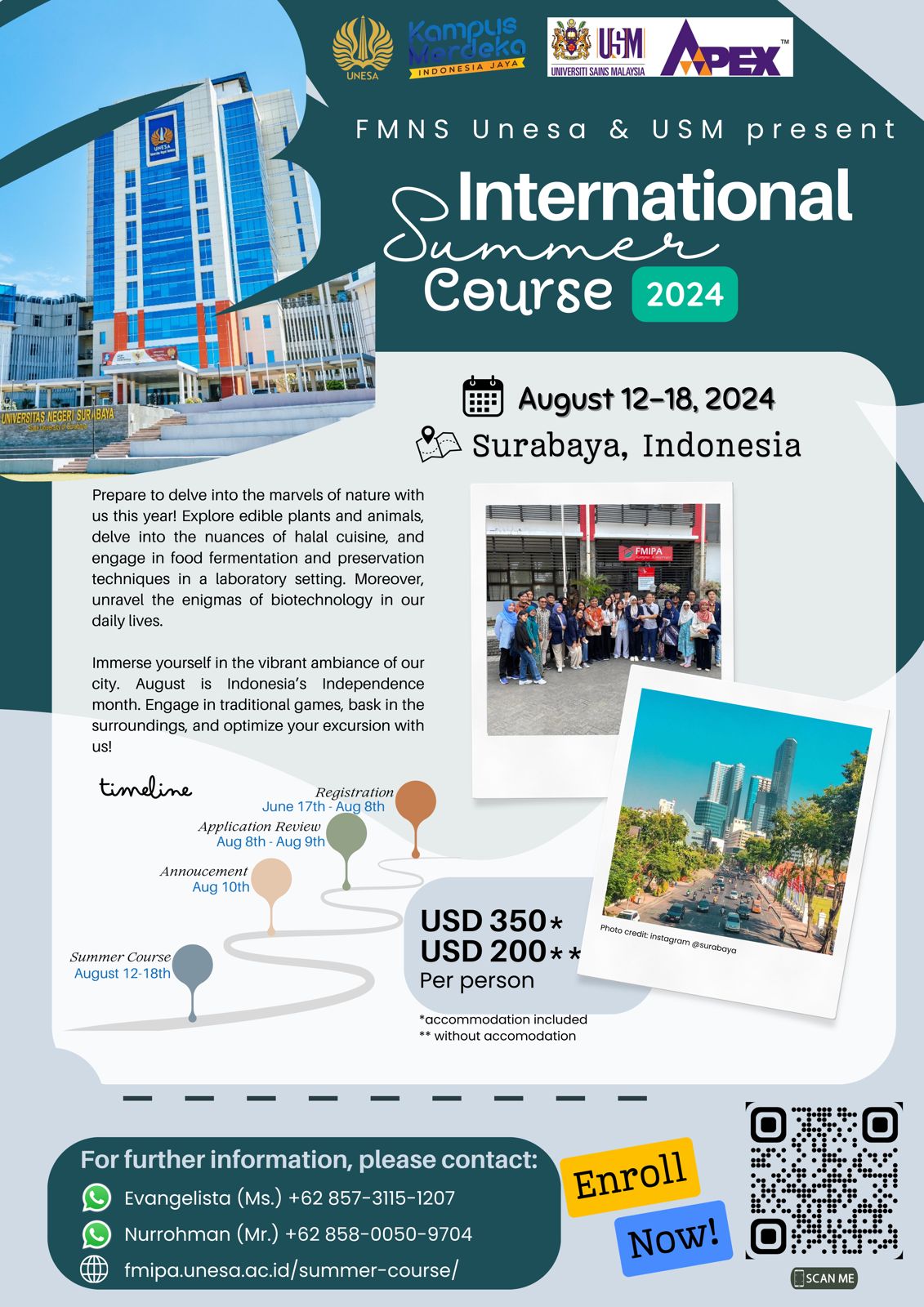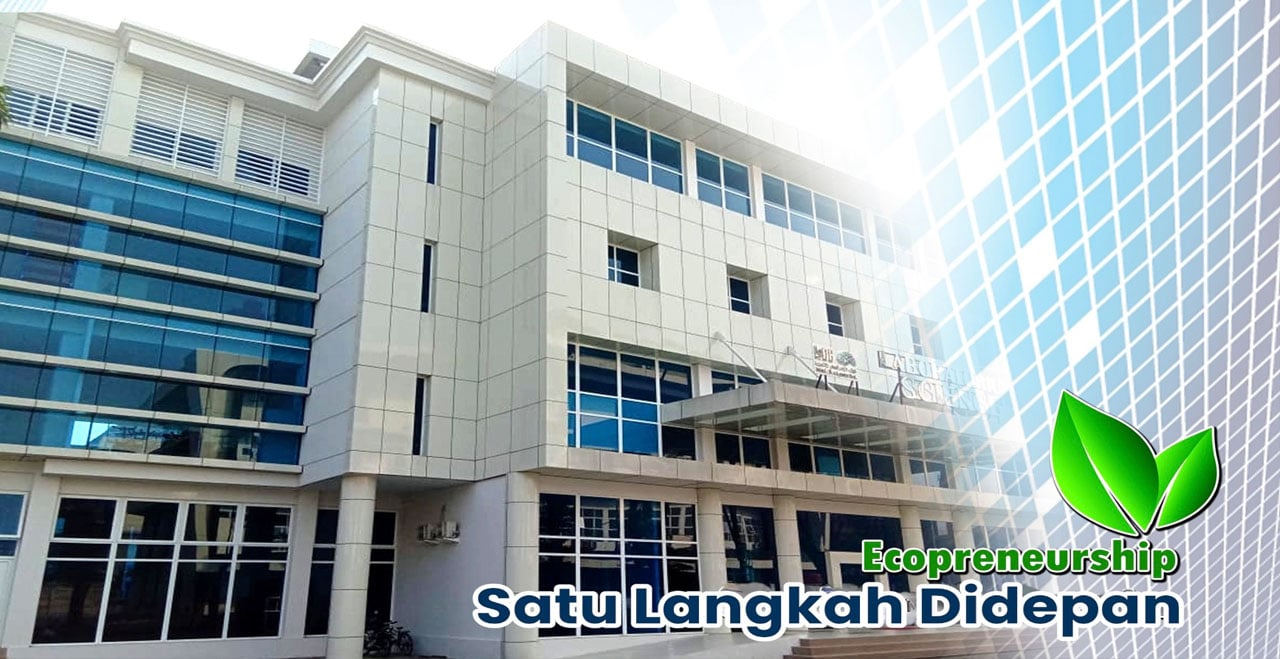
Views: 533
Schedule
| Time | Activity | ||||||
| 14.00-15.45 | Registration | ||||||
| 15.45-17.30 |
|
||||||
| 18.00-20.00 | Reception Dinner |
| Time | Activity |
| ~ 8.00 | Otw to Campuss |
| 08.00 – 09.00 | Topic 1: Biotechnology in Food Science |
| 09.15 – 09.30 | Coffee Break |
| 09.30 – 10.30 | Topic 1: Biotechnology in Food Science |
| 10.30 – 12.00 | Lunch Break |
| 12.15 – 12.30 | Preparing for City Tour |
| 12.30 – 18.30 | City Tour |
| 18.30 – | On the way to Accomodation |
| Time | Activity |
| ~ 09.00 | Otw Campus |
| 09.00 – 10.00 | Topic 2: Indonesian Favourite Food: Tempeh |
| 10.00 – 10.15 | Coffee Break |
| 10.15 – 11.15 | Topic 2: Indonesian Favourite Food: Tempeh |
| 11.15 – 12.30 | Lunch Break |
| 12.30 – 13.45 | Workshop: How to make Tempeh |
| 13.45 – 14.00 | Coffee Break |
| 14.00 – 14.45 | Workshop: Tempeh and Its Derivation |
| 15.00 ~ | Otw Hotel |
| Time | Activity |
| ~ 09.00 | Otw Campus |
| 09.00 – 10.00 | Topic 3: Fermented Food |
| 10.00 – 10.15 | Coffee Break |
| 10.15 – 11.15 | Topic 3: Fermented Food |
| 11.15 – 12.30 | Lunch Break |
| 12.30 – 13.45 | Workshop: How to make tapai |
| 13.45 – 14.00 | Coffee Break |
| 14.00 – 14.45 | Workshop: How to make soybean milk |
| 15.00 ~ | Otw Hotel |
| Time | Activity |
| ~ 09.00 | Otw Campus |
| 09.00 – 10.00 | Topic 4: Food Waste |
| 10.00 – 10.15 | Coffee Break |
| 10.15 – 11.15 | Topic 4: Food Waste |
| 11.15 – 13.00 | Jumaah Prayer and Lunch Break |
| 13.00 – 14.15 | Showcasing the Eco-enzymes |
| 14.15 – 14.30 | Coffee Break |
| 14.30 – 15.45 | |
| 15.45 ~ | Otw Hotel |
| Time | Activity |
| ~9.00 | Otw Campus |
| 9.00 – 10.00 | Upacara |
| 10.00 – 10.15 | Upacara |
| 10.15 – 12.15 | Indonesian Games |
| 10.15 – 11.15 | Bekel League |
| 11.15 – 12.15 | Kempyeng League |
| 12.30 – 14.00 | Break (lunch and prayer time) |
| 14.00 – 14.05 | Opening for Closing Ceremony |
| 14.05 – 14.15 | Speech |
| 14.15 -14.20 | Impression message |
| 14.20 – 14.25 | Token of Appreciation |
| 14.25 – 14.35 | Closing by symbolic and photo session |
| 14.35 – 17:00 | Suramadu Trip/Shopping |
| 17:00 – | back to Hotel |
Program Details
Ethno-Biotechnology
“Ethno-biotechnology: Unraveling the Secrets of Indonesian Local Foods” is a captivating journey into the intersection of culture, biology, and culinary heritage. Focused on iconic Indonesian delights like tempeh and tape, participants explore the age-old techniques and scientific innovations that have shaped these delicacies. From the fermentation process to the cultural significance of these foods, every session unveils the intricate relationship between tradition and modernity. Through hands-on experiments and expert insights, participants gain a deeper appreciation for the ethno-biotechnological marvels that define Indonesia’s culinary landscape.
Environmental Biotechnology
One notable area where environmental biotechnology plays a crucial role in Indonesia is in the preservation of its natural habitats and the protection of endangered species. Biotechnological methods such as genetic engineering and bioremediation are being used to mitigate environmental pollution and restore damaged ecosystems. Researchers and conservationists are also exploring biotechnological approaches to address issues related to deforestation, air and water pollution, and habitat destruction.
Biotechnology in Food Sciences
Biotechnology plays a crucial role in the food sciences sector in Indonesia, contributing to the development of innovative and sustainable solutions for food production and processing. One significant application of biotechnology is in the production of halal-certified food products. With the country’s emphasis on adhering to Islamic dietary laws, biotechnological techniques are utilized to ensure that food products meet halal requirements while enhancing their nutritional value and safety.
Mentors
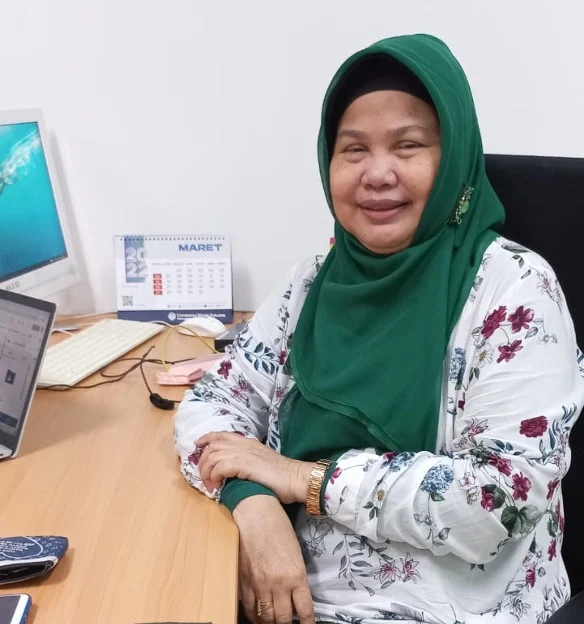
Mentor of Food Safety

Mentor of Food Additive

Mentor of Food Additive

Mentor of Techniques of Preparing food

Mentor of How to Cook Indonesian Food
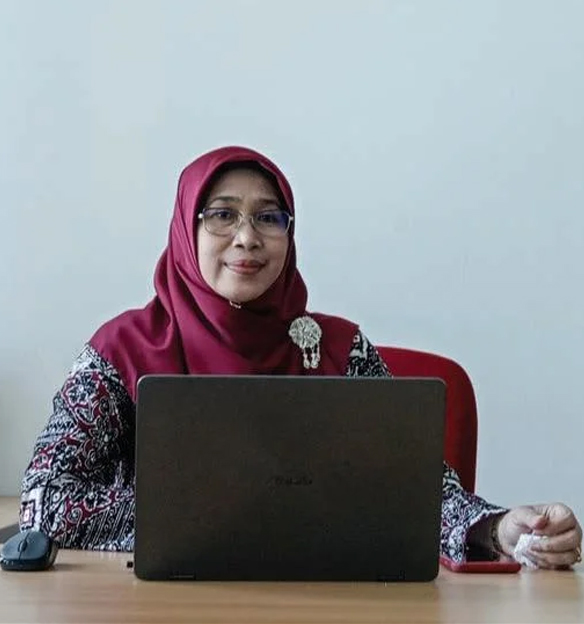
Mentor of Halal Food in Indonesia

Mentor of Biotechnology Around Us
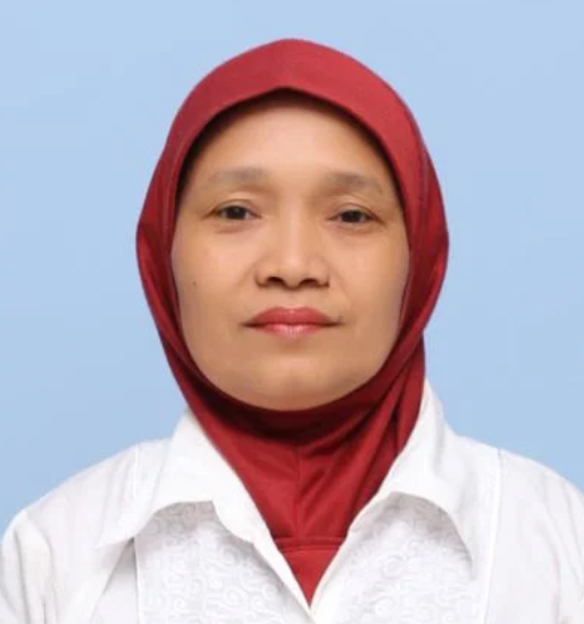
Mentor of Ethno-Biotechnology

Mentor of Environmental Biotechnology

Mentor of Biotechnology in Life Sciences

